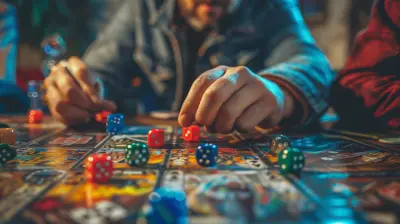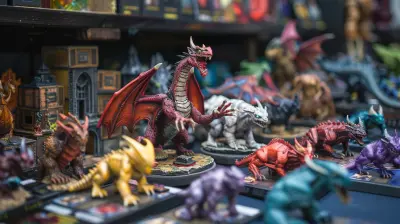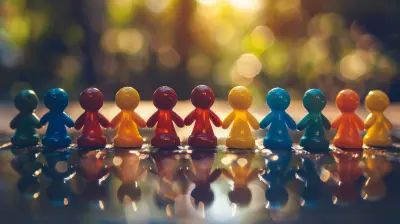The Role of Friendship and Rivalry in Cooperative Video Games
8 July 2025
Cooperative video games—those beloved gems that bring people together to battle foes, solve puzzles, or conquer complex objectives. They’re not just about the gameplay mechanics or flashy graphics; they’re about the bonds you form and the friendly (or not-so-friendly) competition that emerges. Friendship and rivalry are the beating hearts of these games, creating unforgettable moments and memories that last long after the screen goes dark.
But what’s it about co-op games that makes them such fertile ground for camaraderie and (let's be honest) the occasional grudge match? Well, let’s break this down. From building trust to friendly trash talk, we’ll dive into how friendship and rivalry shape the gaming experience.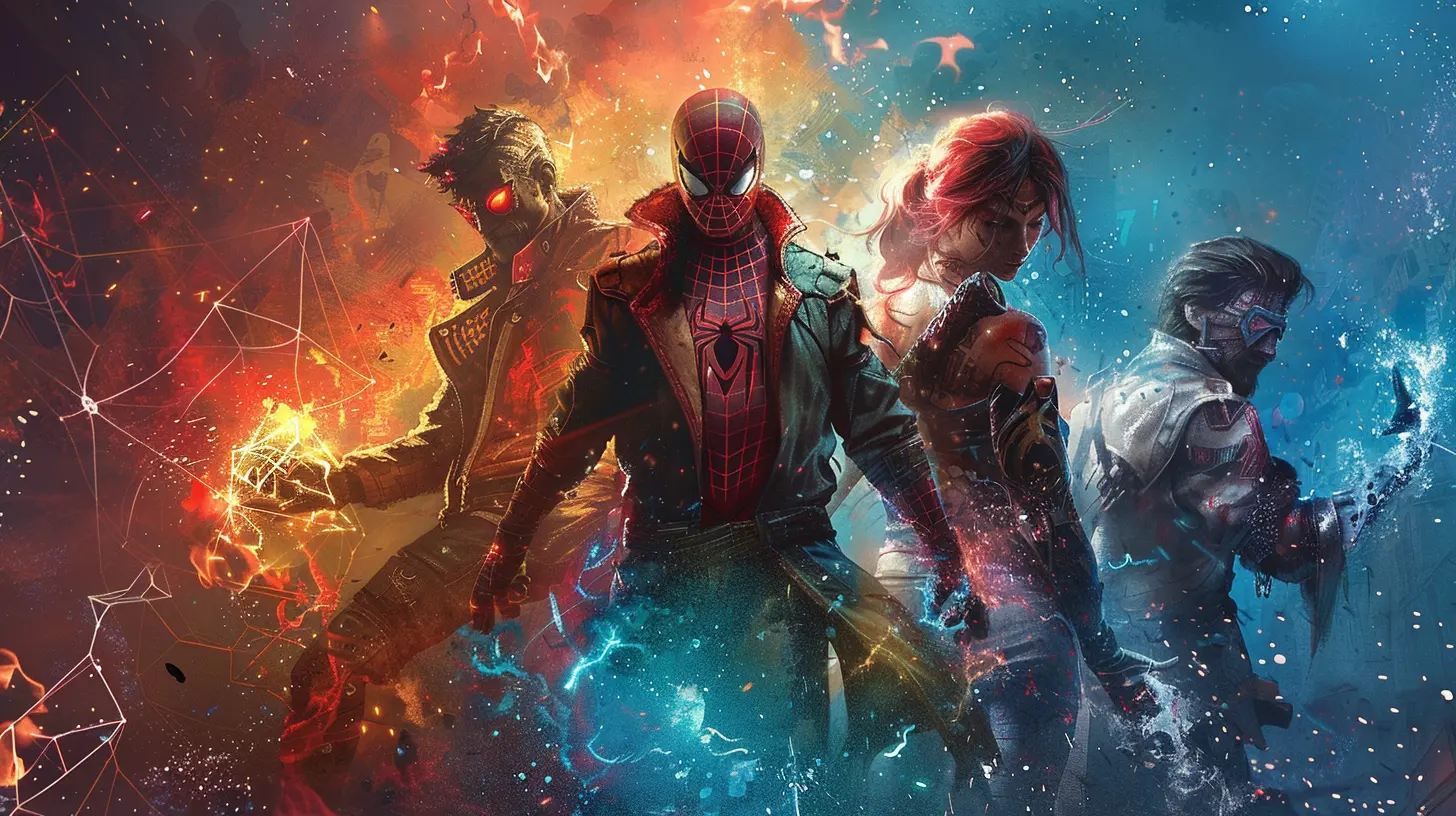
Why Friendship Flourishes in Cooperative Games
Have you ever played a game with a buddy and realized by the end of the night, you’re even closer than before? That’s no accident. Cooperative games are built around teamwork. They nudge you to rely on each other, communicate, and work towards a common goal. And trust me, there’s nothing quite as satisfying as succeeding together after hours of strategizing and synchronized button-mashing.Sharing Victories and Struggles
There’s something magical about sharing the highs and lows in a co-op game. Whether you’re taking down a monstrous raid boss or failing miserably at a tricky platforming section, those shared experiences create a bond. You laugh at the silly mistakes, cheer when you succeed, and comfort each other when you lose. These moments strengthen friendships because they’re full of raw emotion—good and bad.Take a game like It Takes Two, for example. It’s literally built on the concept of collaboration. You and your partner need to solve puzzles that require input from both of you, and failure means trying again together. The game throws you into situations where communication and trust are key, just like in real-life friendships.
Communication is Key
Co-op games teach you how to talk to each other—well, if you want to succeed, that is. Whether it’s yelling directions during a heated round of Overcooked or calmly coordinating a stealth mission in Payday 2, communication becomes the lifeline of your team. And when you spend hours talking, planning, and strategizing, it’s hard not to grow closer to the person on the other end of the controller.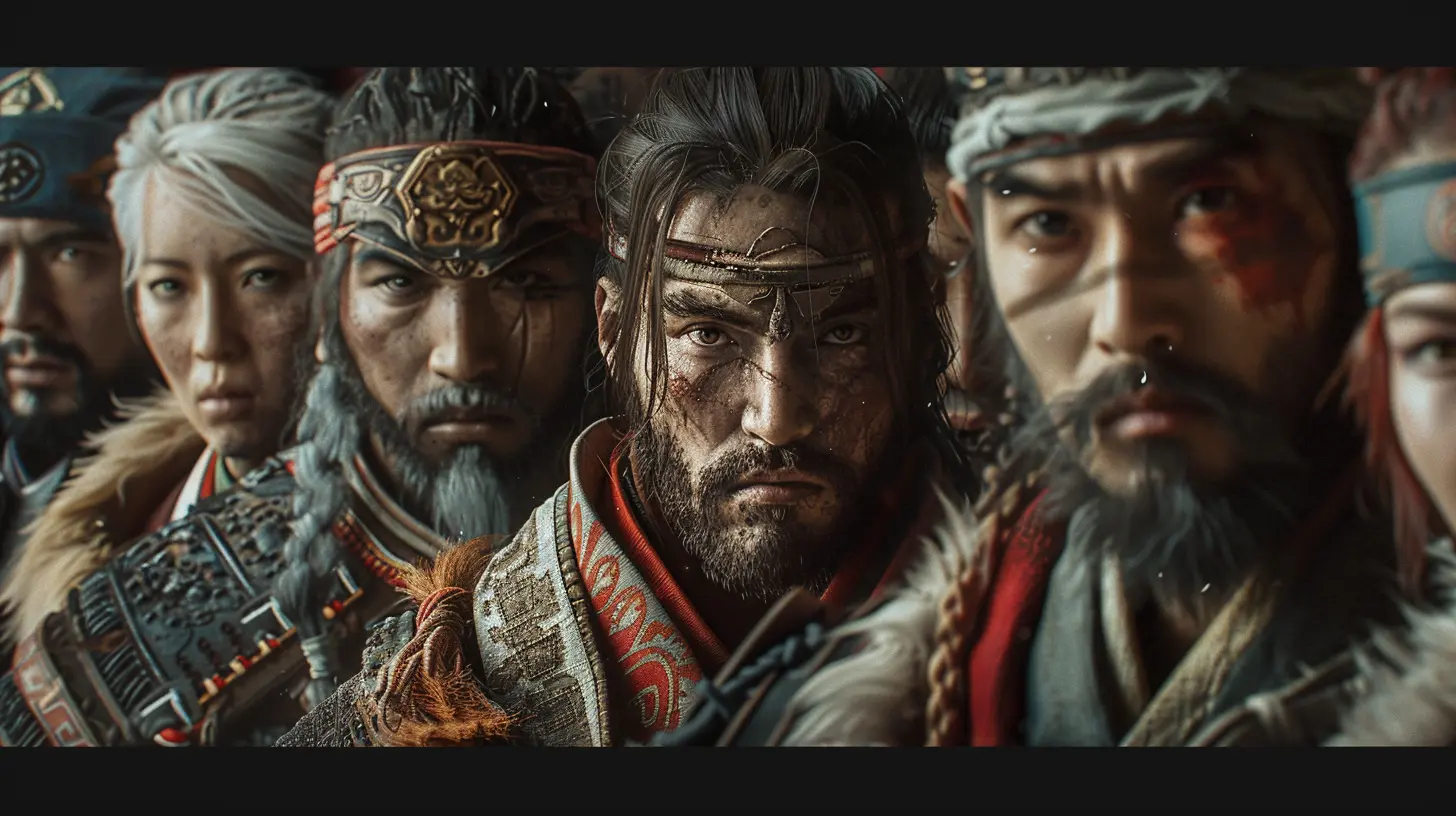
The Role of Rivalry: A Frenemy Dynamic
But let’s not sugarcoat it. Where there’s friendship, rivalry often lurks just around the corner. And that’s not necessarily a bad thing! In fact, a little friendly competition can make cooperative games infinitely more entertaining.The Competitive Edge in Co-Op Games
Many co-op games sprinkle in elements of competition to spice things up. Think of games like Mario Party, where co-op mini-games require teamwork, but your ultimate goal is to beat the other players to the finish line. Even in purely cooperative games, players often compare scores, kills, or performance. Who healed more? Who got the most headshots? Who screwed up the least? These little metrics fuel lighthearted rivalry, keeping things lively.This tension between helping each other and wanting to one-up each other can be downright hilarious. You’re working together, yes, but you’re also quietly keeping tabs on who’s pulling their weight and who’s slacking off. It’s like being on a team with your sibling—you love them, but you’re still trying to outshine them.
Trash Talk and Playful Banter
Ah, trash talk. It’s both the bane and backbone of co-op gaming dynamics. Some friendly ribbing and teasing can make the experience so much richer. Think about it: Would a game of Rocket League even be the same without some good-natured smack talk about that missed goal or epic save? Probably not.What’s important is the tone. If it’s fun and lighthearted, it can actually deepen the bond. It’s like sparring verbally while working toward a shared goal—challenging each other to be better while having a laugh along the way. Just don’t take things too far, or you might find yourself on the receiving end of a grudge (and a vengeful teammate).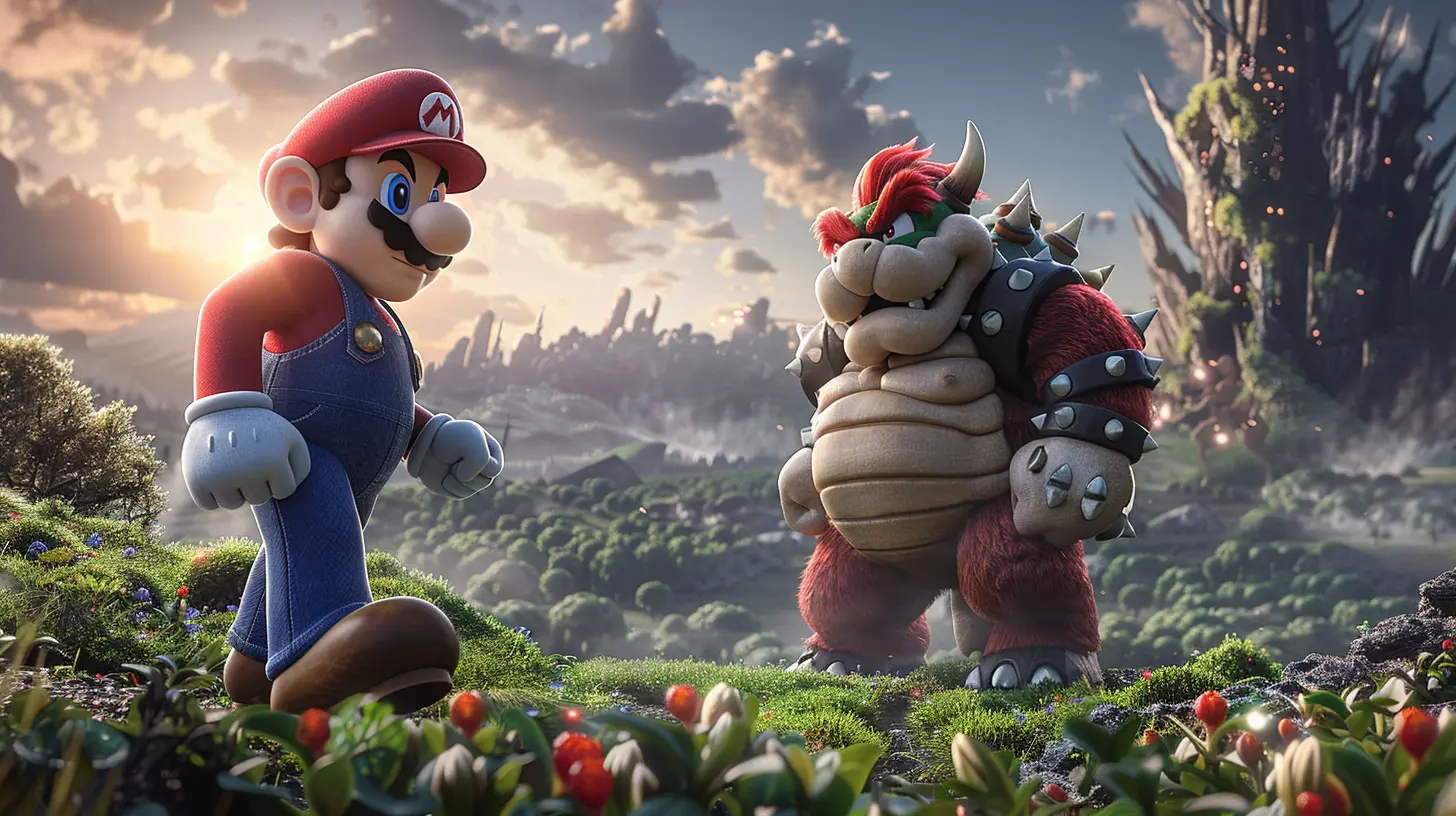
Games That Nail the Friendship-Rivalry Balance
Some games just get it. They’re designed to tug at both your collaborative instincts and your competitive streak. Here are a few standout examples that balance friendship and rivalry perfectly:1. Overcooked Series
If you’ve ever had your kitchen descend into chaos in real life, Overcooked will feel strangely familiar. You and your teammate(s) work together to assemble orders in a fast-paced, often ridiculous kitchen environment. One wrong move, and you’ll have orders piling up and customers storming out. It’s collaborative madness, but watching your friends panic because they burned the soup? Priceless.2. Portal 2 (Co-Op Mode)
This game is the perfect test of friendship. You’ll need to solve intricate puzzles using portals, which requires intense cooperation and communication. But here’s the kicker—there’s nothing stopping you from trapping your partner in an endless loop of portals just for fun. It’s the ultimate mix of teamwork and trolling.3. Mario Kart (Team Mode)
While primarily a competitive game, Mario Kart allows for team play—and let’s not pretend that throwing a blue shell at your “teammate” to snatch first place doesn’t occasionally cross your mind. This game captures the spirit of rivalry in a way that’s pure, chaotic fun.4. Sea of Thieves
Few games make cooperation feel this rewarding. Whether you’re battling enemy ships or hunting treasure, you and your crew need to work together to keep the ship afloat. But it’s not uncommon for a bit of mutiny to creep in when someone can’t resist stealing a little extra loot for themselves.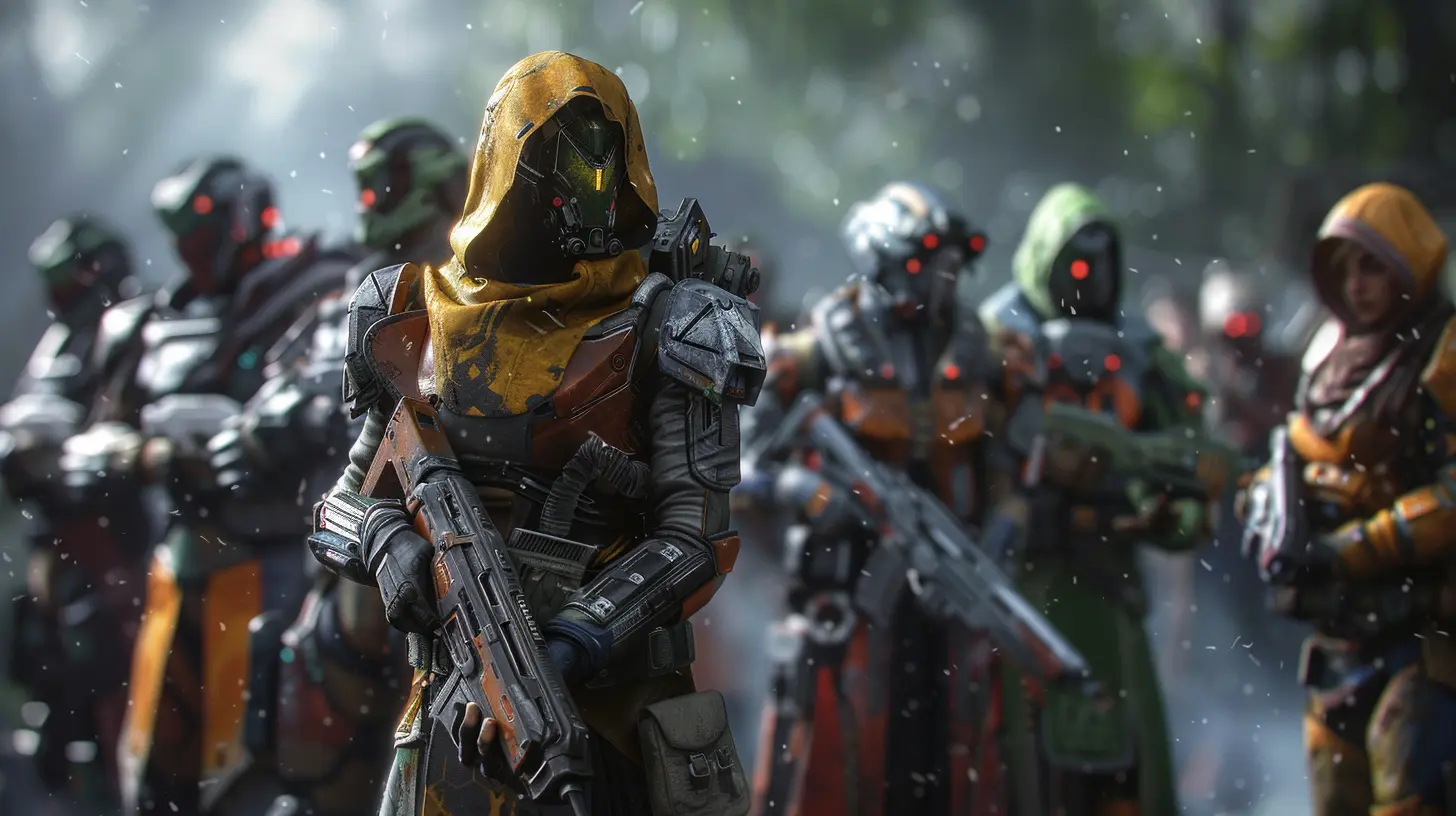
The Emotional Rollercoaster
So, why do we keep coming back to these friendship-and-rivalry-fueled games? It’s simple: They make us feel things. They push us to trust each other, to laugh, to bicker, and to celebrate. Whether you’re playing with your lifelong best friend or a random stranger from the internet, cooperative games tap into our innate need for connection.And yeah, sometimes they also make us want to throw our controllers across the room—but isn’t that all part of the fun?
Tips for Navigating Friendship and Rivalry
Want to keep your co-op gaming sessions fun and drama-free? Here are a few pointers:1. Communicate Openly: Don’t bottle up frustration. If someone’s hogging all the loot or not pulling their weight, talk about it.
2. Keep Trash Talk Light: Remember, it’s all in good fun. Don’t cross the line into hurtful comments.
3. Celebrate Success: Make sure to cheer each other on when things go well. Positive reinforcement goes a long way.
4. Take Breaks: If things get heated, don’t be afraid to pause the game and cool off.
5. Know Your Audience: Not everyone enjoys competition. Tailor your approach to the people you’re playing with.
Final Thoughts
Friendship and rivalry are the yin and yang of cooperative video games. They balance each other out, making every gaming session a unique and memorable adventure. Whether you’re laughing until you cry or silently vowing revenge on your teammate-turned-rival, one thing’s for sure: co-op games bring people closer, in all their beautifully chaotic glory.So, grab a controller (or keyboard and mouse), call up a friend, and prepare for an experience that’s as much about the people you’re with as it is about the game itself. Just don’t forget to patch things up after you inevitably throw them under the bus—because that’s what friends are for, right?
all images in this post were generated using AI tools
Category:
Gaming CultureAuthor:

Emery Larsen
Discussion
rate this article
2 comments
Otto Dillon
Oh, the joys of teaming up with friends to defeat a digital monster—only to turn on each other like a pack of rabid wolves over loot! Who needs therapy when you can bond over pixelated betrayals and intense rivalries? Friendship is just a glitch in the cooperative matrix!
October 22, 2025 at 3:06 PM

Emery Larsen
Absolutely! The blend of friendship and rivalry in gaming creates dynamic experiences, turning teamwork into memorable tales of loyalty and betrayal. It’s all part of the fun!
Carmen Newman
Absolutely loved this piece! It’s amazing how friendship can turn a tough boss battle into a fun adventure, while a little friendly rivalry spices things up. Let’s celebrate both as the ultimate duo in gaming. Keep gaming and keep bonding! 🎮✨
July 14, 2025 at 5:10 PM

Emery Larsen
Thank you! I'm glad you enjoyed the piece. Friendship and rivalry truly enhance the gaming experience! 🎮✨
